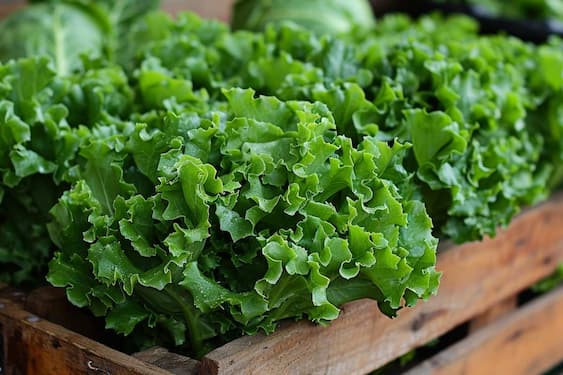10 Secret Powers Of Lettuce For Your Overall Well-Being
Lettuce holds significant importance in the realm of nutrition and culinary arts due to its rich array of health benefits and versatile culinary uses. As a leafy green vegetable, lettuce is notably low in calories but high in essential vitamins and minerals.

Lettuce, often regarded for its mild flavor and high water content, offers a range of health benefits that make it a valuable addition to a balanced diet:
1. Nutrient Density:
Despite being low in calories, lettuce is rich in essential nutrients. It contains vitamins A, C, and K, along with folate and several B vitamins. These vitamins are crucial for various bodily functions, including immune function, vision health, and blood clotting.
2. Antioxidant Properties:
Lettuce contains various antioxidants, such as beta-carotene, lutein, and zeaxanthin. These compounds help neutralize harmful free radicals in the body, reducing oxidative stress and inflammation, which are linked to chronic diseases.
3. Hydration:
With its high water content (approximately 95%), lettuce contributes to overall hydration levels in the body. Adequate hydration is essential for maintaining bodily functions, regulating body temperature, and supporting cardiovascular health.
4. Digestive Health:
Lettuce provides dietary fiber, which supports digestive health by promoting regular bowel movements and preventing constipation. Fiber also helps maintain a healthy gut microbiome, which is crucial for immune function and overall well-being.
5. Heart Health:
Potassium and fiber in lettuce contribute to heart health. Potassium helps regulate blood pressure by counteracting the effects of sodium, while fiber helps lower cholesterol levels and reduce the risk of cardiovascular diseases.
6. Weight Management:
Due to its low calorie and high water content, lettuce is an excellent choice for those looking to manage their weight. It adds bulk to meals, promoting satiety without significantly increasing calorie intake.
7. Bone Health:
Lettuce contains vitamin K, which is essential for bone health and blood clotting. Adequate vitamin K intake helps maintain bone density and reduces the risk of fractures, especially in older adults.
8. Skin Health:
Vitamin C in lettuce is important for collagen synthesis, which supports skin elasticity and wound healing. Additionally, antioxidants like beta-carotene contribute to skin health by protecting against sun damage and promoting a youthful appearance.
9. Eye Health:
The presence of lutein and zeaxanthin in lettuce helps protect the eyes from age-related macular degeneration and cataracts. These antioxidants accumulate in the retina and filter harmful blue light, reducing the risk of eye diseases.
10. Mood and Cognitive Function:
Lettuce contains minerals like magnesium and folate, which play a role in supporting mood regulation and cognitive function. Magnesium, in particular, helps relax muscles and promote relaxation, while folate is important for neurotransmitter synthesis.
